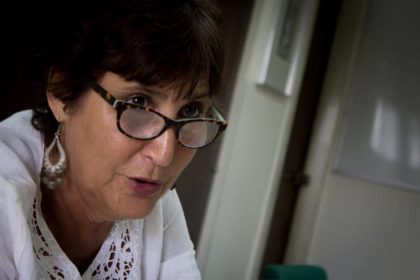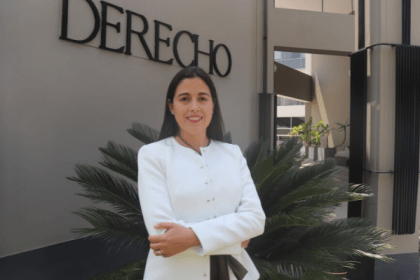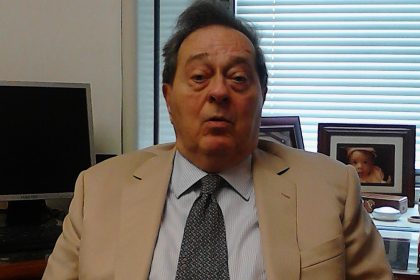Luis Lander is professor at the Faculty of Economic and Social Sciences of Universidad Central de Venezuela, engineer and member of the Board of Directors of the Venezuelan Electoral Observatory, an organization that has been following the electoral processes since 2012. During these times in which the round of negotiations in Dominican Republic is being carried out, whose central axis is the date of the presidential elections, Provea consults his opinion on what should be the opinion of the citizenship. Lander answers, reviewing the irregularities of recent years that have limited the exercise of the right to electoral participation.

– We would like to start by defining the convulsive moment of the country and the call to early elections for the presidency of the republic by the National Constituent Assembly.
– In order to place the electoral situation in which we find ourselves, it is worth looking backwards for a moment, quickly at least, into the history of recent years. Perhaps, the last “normal” elections were the December 2015 parliamentary elections, even though there were also irregularities, evidenced in the report we made in this regard. It could be observed that this process was not absolutely clear, it had inconsistencies, but we had no hesitation in validating the results, which were recognized by the whole Venezuelan society. As an example, we can name the results of the last circumscription of Aragua state -where the ruling party traditionally won with ease-, in which an opposition candidate won for less than 100 votes. A very important result, considering it made the opposition a qualified majority with 112 MPs.
From then on, a lot of things have happened that have made the electoral landscape darker. With regard to that same election, a number of irregularities have occurred. In December, the losing candidate of Amazonas state denounced that votes had been bought and issued a complaint before the Electoral Chamber of the Supreme Court of Justice, because the National Electoral Center was on vacation. That Chamber, without taking too long, established that there were presumptions that indicated irregularities in those elections, ordering the National Electoral Center to ignore the results and take back the popular decisions on the three indigenous MPs already proclaimed in that federal entity and an MP from the southern circumscription. Three were Members of the opposition party and one from the ruling party, which caused the loss of qualified majority by the opposition. In addition, the Supreme Court – after two years- has not issued a final ruling on that case, whether to find elements to advance a procedure on that irregularity and, therefore, incorporate the four MPs or to demonstrate the irregularities and call to elections, once again, for that constituency. The result is no representation before the National Assembly for Amazonas state and the indigenous peoples of the southern circuit.
– This decision caused a detriment in the performance of the National Assembly, hindering its normal performance. On the other hand, there was also a lack of acknowledgement on behalf of the Executive towards the National Assembly.
– That’s right. It is also important to highlight other conditions that evidence the deterioration of electoral conditions during 2016 in Venezuela. The opposition took a series of actions, such as the public complaint of the Colombian nationality of the president, ergo he must have been removed because he was not Venezuelan by birth; the abandonment of the office by the president, which would imply calling for elections to vote for that position; and the more popularly accepted, because ordinary citizens made it their own, was the call for a presidential referendum. However, throughout 2016 the National Electoral Center made all possible delays to this process. That referendum should have been held before the end of the fourth year of office; if it was held in the last two years, new elections are not called, but the vice president ends the presidential term. It is important to highlight the National Assembly is in default with regard to regulating the referendum processes, thus the conditions are not entirely clear. There is also a ruling of the Constitutional Chamber of the Supreme Court of 2002 which establishes that until there is a Referendum Law, the National Electoral Center, through regulation, would be the one to establish the norms. This has turned the National Electoral Center into judge and party, being translated into what actually happened: based on a number of regulations throughout the process –which, upon reaching the penultimate phase, was the collection of 20% of signatures corresponding to the electoral register-, seven criminal courts of first instance -without electoral competence- decided there were irregularities in the collection of signatures, so the process had to be suspended, decision that was executed by the National Electoral Center.
The second irregularity that occurred that year was the suspension of regional elections. Although it is true that the National Electoral Center is the body responsible for calling to elections and setting a date, the Constitution establishes that such calling must correspond to the period of exercise of the elected officials’ functions. This applies to both Governors and the State Legislative Councils. However, the National Electoral Center postponed this process, citing technical impossibility due to the call for a referendum, postponing them to the first semester of 2017, but it was not carried out due to the judgment of the Supreme Court of Justice, which ordered the validation of the political parties and elections could not be called until that process had not finished.
In 2017, the president makes a call to a National Constituent Assembly, proposal processed in an expeditious manner by the National Electoral Center with a completely new and extremely perverse set of electoral bases: political parties could not be nominated but candidates on their own initiative, the candidates should collect a number of signatures for their application –process that was not verified with the same rigor the signatures of the 2016 presidential referendum were. In addition, the electoral bases altered a basic principle of one voter for one vote, violating this principle in two ways: the representatives to the National Constituent Assembly would be territorial and sectorial. The territorial basis was defined by municipalities, so municipalities with 5,000 inhabitants had the same representation as another one of 500,000 inhabitants. On the other hand, the president made up the sectorial representation -without further discussion- establishing 8 sectors of the Venezuelan society and creating sectorial electoral registries, such as the one for pensioners, which led to situations as what happened with people who had Social Security pension, who appeared in the registry; while those who were pensioned by other institutions that didn’t appear.

– It promotes situations of discrimination…
– In addition to irregular situations, such as electors with the right to two votes and electors with the right to a single vote. On the other hand, there were no nominations by sectors of the opposition, all candidates being close or openly supporters of the ruling party.
– At that time, the opposition -at least the most visible one- faced by the MUD, decided not to take part in the Constituent elections.
– That is true, but -nonetheless- any political organization had the freedom to decide whether or not to participate in that process, given those conditions. But in that existing reality, where all candidates were supporters of the ruling party, the National Electoral Center did not review the signatures to check if they met the conditions to be nominated or not. It is also important to note that, as the date of the election approached, the conditions were relaxed, such as the non-use of indelible ink, although there are more modern mechanisms to prevent duplication of voting. The National Electoral Center -close to the election date- informed that the voters could vote in any electoral center of the municipality where they were registered. And, what does it mean? That there are no voting records, so there were no registers and voters were allowed to mobilize and vote in several polling stations without any control measure. In that sense, the electoral results were unreliable. On the other hand, there were two very relevant facts of that process. First, the public statement of the company Smartmatic -a company that had been giving technical support to the National Electoral Center-, which declared that it was found the manipulation of one million votes. The second fact was the way in which the National Electoral Center published the results of that election; the results of the elections can traditionally be seen on the National Electoral Center website in a disaggregated way, which means, everyone can see national, state, municipal, parish and even table by table results; but that did not happen with the election of the ANC. The information is only disaggregated up to the level of municipality, preventing the right of citizens, as established in the electoral regulations, to compare the results they could have collected from the voting table where they voted -once the process ended- with those published by the National Electoral Center, violating the right to citizen auditing.
Following the turbulent origin of the Constituent National Assembly is -among its prime decisions- calling for regional elections in October 2017, without specifying a date. The National Electoral Center welcomes the constituent decree and transforms the regional elections into elections for governors, because the call for elections did not include State Legislative Assemblies, violating a 2010 Law in which Governors and Members of the State Legislative Assemblies are elected on the same date, Mayors and Councilmen are chosen on the same date as well, so that the time periods coincide.
– The laws and orders issued by the Constituent National Assembly are above the current legal system, including the electoral one.
– However, the Constituent National Assembly called for regional elections and the National Electoral Center drew the elections of Members to the Legislative Assemblies of the electoral process. In addition, the National Electoral Center receives the call for elections in October, but it does not fix a date, although it has the obligation to do it by law. On the other hand, the electoral body begins the usual activities of electoral process without making public the timetable. Although it may be considered unimportant, it is not, it is absolutely crucial. Each electoral process has around one hundred activities -a little more or a little less, depending on the process-, which allow the realization of a good electoral process and there are activities that are not minor at all, such as the nomination date of the candidates, propaganda period, date of contestation of candidates. And I started talking about the nomination of candidates because when the National Electoral Center said that elections were to take place in October without fixing the date, it did say literally: “tomorrow and the day after tomorrow candidates must be nominated.” And the National Electoral Center published that schedule in the second week of September of that year, showing something absolutely outrageous at the end of the chronogram’s publication a series of “previous activities”, which is a sign of unavoidable irregularity.
– Were a series of activities carried out without the participation of the aspirants and political organizations?
– This had undeniable consequences in the governors’ elections of 15 October. On that occasion, most of the opposition parties nominated candidates, in the understanding that the unification of candidates -wherever possible- was a process that could be done afterwards. Once this was done, the parties did what is enshrined in the Organic Law of Electoral Processes in regard to the modification and substitution of candidacies. In this sense, all the candidates who lost in the primary elections submitted letters of resignation before the National Electoral Center and this body, contrary to the provisions of the law, placed a date on the schedule other than that established by law. Additionally, the Supreme Court, established in a judgment that the ten working days period to carry out that procedure had passed. The most notorious consequence occurred in Bolívar state, where a candidate who had resigned was left on the ballot and the voters trusted him about 3,000 votes. If these had joined Andrés Velásquez’s, he would have won the governorship. Moreover, something that had never happened in all these years occurred: Although the National Electoral Center authorities had boasted that we have the best electoral system in the world, for the first time it could be seen that there was a manipulation of results, as the losing candidate could get the minutes of the voting centers in which these results did not match with those published by the electoral body. In the same vein, the candidate consigned the complaint before the National Electoral Center and it was admitted. In this case, the discretion of the electoral entity can be evidenced if we compare it with the aforementioned case of Amazonas for the National Assembly’s 2015 elections, although the presumed winner was not disproved in this case, but it was admitted that the fact must have been investigated, and we are still awaiting for an action of the National Electoral Center.

The present: Presidential elections 2018
– With this big picture, is it worth going to an electoral process without guarantees and called by an unconstitutional body such as the Constituent National Assembly?
– In the constitution, it is fully enshrined that presidential elections should be held this year, since the new president must take office as a result of those elections in January 2019. The Venezuelan electoral tradition always established that they were held in December, since the assumption of the presidency took place in February the following year, at least until the 1998 elections in which Chávez won. After Chávez’s triumph, the promise of a referendum for the drafting of a new constitution was fulfilled, and that constitution was approved, also by referendum in December 1999. This new constitution among its innovations has the change from a bicameral congress to a unicameral assembly, the presidential period goes from 5 to 6 years, a set of modifications, which was resolved with what was called the Mega-election.
– The renewal of all powers…
– That is what was intended to be done one day. The National Electoral Center failed there, which was resolved by making the election in two batches, one in July and another one in December. In July the president was elected, after that in the 2012 elections -presumably for President Chávez’s health reasons- the National Electoral Center decided as a concession to hold the elections in October and not in December. And on the other hand, the 2013 elections were also held in March due to the death of President Chávez. Except for these conditions, the logical, healthy and convenient thing to do in order to comply with what is stipulated in the Constitution is that elections were held, if not in December, at least in the last quarter of the year. Assuming that an opposition candidate wins, the disaster that will occur when an election is held before 30 April, which is what the constitutional decree establishes, we would have from the beginning of May until January 2019 a retiring president and an elected president.
– How to go to a process with these characteristics?
– We are in the same conditions as the ones for the elections held last year for governors. In the negotiations that are currently taking place in the Dominican Republic, the government apparently says that it will allow Venezuelans abroad to exercise their right to vote, that the electoral registry will be opened, that all audits will be conducted. However, if elections are held before 30 April, there is no time to do that and even less if it is done at a time that does not allow, for example, that Venezuelans abroad can register or modify their residence. Neither has the National Electoral Center carried out a campaign calling new voters to register, which is not the way to ensure that citizens can exercise such an important as the right to vote.
– What other condition would be important citizens demand to participate in that process?
– The international and national observation, of course. In my opinion the last serious international observation was that made by the European Union (EU) in the 2006 presidential elections. In that process, the EU came to the country at least six months in advance, installed a team of electoral technicians of approximately 15 people and -for the day of the elections- they mounted a network of at least 1,000 observers throughout the country. Not these “accompaniers” that the National Electoral Center mentions, which are invited in a personal capacity without greater observation extent, except to visit one or two polling stations. From this date to April, there is no possibility of installing a quality electoral observation.
– In that reality and also with an organism such as the Constituent National Assembly, is it feasible that in the case an opposition candidate wins that body might not acknowledge it?
– In Zulia, once happened with an elected governor who after not swearing before the Constituent National Assembly, he was not acknowledged and the National Electoral Center called for a new electoral process. If it were a legitimate Constituent National Assembly, the current Constitution establishes that the task of this Constituent National Assembly is the drafting of a new Constitution.
The international outlook and the citizen pressure
– In your opinion, if the European Union, the Lima Group and others do not acknowledge the fraudulent elections and the opposition wins, will they recognize this new President?
– The countries in that position assume it understanding that elections are designed for Maduro to win. If something different happened, that position would change. It is a very dark picture, very complicated. The fact that we do not know the date of the elections yet… I would like to believe -even mildly- that it is a thing that could still be negotiated in some way, that it becomes more difficult if a date is set. As it seems in this last round of negotiations, the government seems -still very willing- to accept verbally the improvement of conditions, but without altering the date, which conspires against the improvement of conditions. On the one hand to say at this very moment that conditions are not given and therefore I do not participate, would lower the pressure around the electoral conditions, since the citizenship could not pressure on a process in which it has already been said that it is not going to participate.
– With what was said on the international community, what should be the request of the citizens right now?
– At this moment, the position is to have elections, but quality elections, approved by political parties, but also by the citizenship. We must vindicate the search for a peaceful, constitutional, democratic and electoral solution to the Venezuelan crisis and it is not to take the elections out of the menu, they are there and they are a very central part of the proposal. Making the in advance decision of not participating in the upcoming elections would be anticipated, because I believe the national and international pressure to guarantee better electoral conditions must continue. I do not believe that the government has such a level of strength to disregard international and national pressure for improvements in electoral conditions, so I think it is a –very- worthwhile fight.
– How could a citizen make pressure for these conditions?
– Individually very little, but at the level of very active civil organizations, which in Venezuela should not be underestimated, that make public announcements, that manifest themselves in public statements. One of the conditions through which there must be pressure and very strong pressure is that elections are carried out with enough time, smoothly and fulfilling what guarantees a transparent process.
Provea




